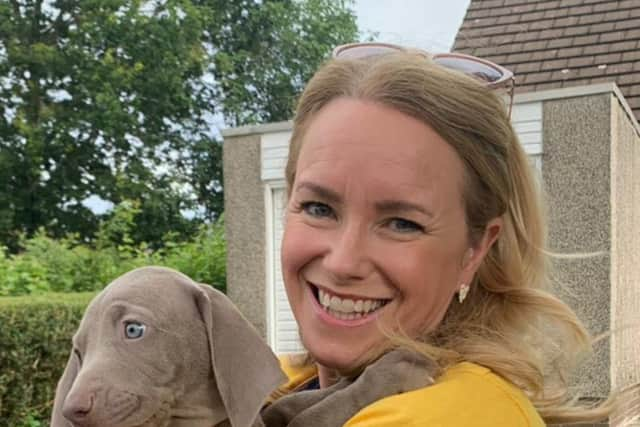Glasgow teacher whose laughter triggered narcolepsy, able to laugh again
and live on Freeview channel 276
One moment, Heather McFarlane was watching a Peter Kay routine on TV in bed with her husband. The next, it looked like she was sound asleep. But Heather wasn’t asleep. Her laughs had triggered her cataplexy, a symptom of narcolepsy, which meant that despite appearances, she was wide awake.
‘It was horrible’
Heather (47) from Jordanhill, said: “I was laughing and within a split second it looked like I was asleep, but I was lying there and I couldn’t move any muscles. It was horrible. I was still awake and conscious, but I was essentially trapped in my body.”
Advertisement
Hide AdAdvertisement
Hide AdHeather first noticed things were not right in 2010, while she was on maternity leave with her third child. She was struggling to stay awake. She then noticed that emotions, such as laughter or smiling could trigger an attack. Her face muscles would droop and her legs would give way.


In her job, teaching children with additional needs, she would retreat to the staff toilets where she would end up asleep. People would talk to her and she would struggle to stay awake. She had to give up driving the school bus.
Avoiding funny situations
She said: “It was horrendous. When I laughed, I had a kind of shutdown, as if I had rebooted in a split second. Like the power had gone out and come back on again. I had to stop watching funny things on TV and avoiding funny situations with the kids.
“It saw part of me disappear. I even had to learn to function as a different kind of mum to the one that I was.”
Treatment
Advertisement
Hide AdAdvertisement
Hide AdHeather sought help from her GP and in 2013, was referred to a specialist team at Glasgow Royal Infirmary for support, where she was finally diagnosed. Such is the rarity of the condition, it can often take 10 or more years for a patient to be diagnosed, during which time, some are dismissed as being lazy or unproductive.
While there’s no cure for the condition, the team worked to find out the best clinical treatment, as well as other support required to help Heather keep her job and live a more ‘normal’ life.
Margaret Docherty, a nurse practitioner at the sleep clinic, has been pioneering treatment approaches, with her expertise sought by colleagues right across Europe.
She said: “Narcolepsy can be completely devastating for people’s lives. It’s about finding the right treatment and support for the person, everything from psychological support, to medication and understanding their lives and needs. My driver is how we can improve things for people – that’s what matters.”
Advertisement
Hide AdAdvertisement
Hide AdThe team prescribed Sodium Oxybate, a purified form of GHB, as part of a range of treatments to help Heather stay awake during the day and asleep at night.
“It was a game-changer in lots of different ways,” added Heather. “I’ve been able to get some of my life back.”
‘Transform lives’
Dr Eric Livingston, respiratory consultant and clinical lead at the clinic, said: “When we get the medication right, it can transform lives, allowing people to drive their cars again, or get back to work or university – instead of people thinking they are tired or lazy.
“Some people have been told for 30 years that they are lazy, before they even get a diagnosis, but we can support and get them back to a full life again.”
Advertisement
Hide AdAdvertisement
Hide AdDr Livingston paid tribute to his team, not least Margaret.
He added: “I deal with the narcolepsy and clinical symptoms, but the service Margaret provides is unique. She can see the big picture about how it impacts on people’s lives. She has done amazing work with these patients and, along with our service being a pioneer in providing new medications, it’s really making a positive difference.”
Laughing again
Heather has been supported by her colleagues at Hazelwood School and remains at work – with a beanbag on hand, in case it’s needed for her less frequent attacks. She’s also found ways to smile and laugh again.
She added: “The team have been amazing. It’s not just the condition they are interested in, it’s me as a person - and not just me, but my wider family as they know this impacts all of us.
“It’s hard to live in Glasgow and have to avoid things which are funny – now I don’t have to.”
Comment Guidelines
National World encourages reader discussion on our stories. User feedback, insights and back-and-forth exchanges add a rich layer of context to reporting. Please review our Community Guidelines before commenting.
